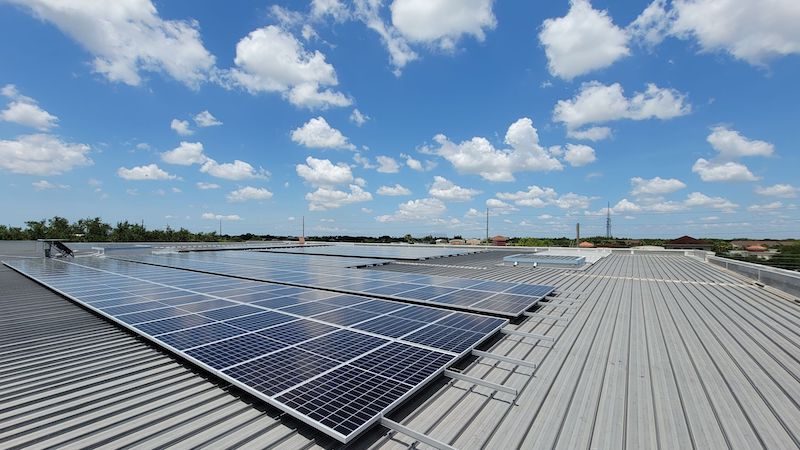NEW: We Made the List: America's Top 100 Most Loved Placed to Work
Why Solar Should Be Part of Your Procurement Strategy
August 25, 2022

As inflation rises and compounds the economic impacts of COVID-19, procurement leaders are increasingly struggling to manage day-to-day operations with dwindling resources and tight budgets. While it may feel uncomfortable to consider new investments right now, it’s important to remember that a successful procurement strategy is based on intentional long-term planning. This means investing in technologies, systems, and processes that will increase operational efficiency and save your facility time and money in the long run.
Incorporating solar energy into your procurement strategy not only affords operational cost savings from day one, but it can also align with company and department goals to set up your business for resiliency and cost reduction. In this article, we outline the top benefits of adding solar to your procurement portfolio – and how to get started on your solar procurement journey.
Solar reduces operational costs
Solar energy can help procurement teams lower costs by directly decreasing a building’s dependence on the electric grid. Between 2012 and 2021, average U.S. commercial retail electricity prices rose by 11.7% – and they’re only predicted to keep climbing. By procuring solar energy, you not only lower this month’s utility bill through reduced grid electricity consumption, but also ensure a hedge against future energy spend. For example, when you procure solar through a power purchase agreement (PPA), you lock in a guaranteed rate that ensures low-cost electricity for the contract term. If you choose to invest in an onsite solar system instead, not only are you able to benefit from OpEx savings, but you are able to glean generous tax benefits and sometimes even incentive income.
Onsite solar can also be paired with battery storage for increased cost-saving and operational flexibility by enabling system owners to strategically shift daytime energy consumption from the grid to avoid pricey on-peak rates or reduce burdensome demand charges. Depending on your location, you may also be able to earn bill credits for any excess solar energy that you export to the grid through a utility net metering program. Solar energy allows you to turn that expense into an asset.
Solar decreases exposure to long-term risk
Operational risks stem from the uncertainty of future conditions and their impacts. Solar helps you minimize your operational risk by stabilizing your energy supply, minimizing your exposure to utility prices, and diversifying your energy resources.
As a reliable source of daytime energy, solar empowers you to take control of your energy spend by reducing the long-term cost impact of future electricity price fluctuations. This is especially true for retail energy customers tied to index contracts. And because solar is powered by the sun, you don’t need to worry about unforeseen fuel supply shortages or cost spikes. What is clear is an investment in solar energy offers immediate day 1 value while also providing decades of visibility and increased control of your energy supply.
Solar supports corporate sustainability goals
Because solar energy is a clean, renewable energy that requires no fossil fuels and emits no greenhouse gasses when produced, solar procurement can directly contribute to a business’s carbon reduction goals or renewable energy targets.
In recent years, an increasing number of businesses have established goals to reduce their carbon footprint through renewable energy procurement. In fact, corporate renewable energy procurement reached more than 11 gigawatts last year alone. Consumers are responding positively to this trend; almost 90% of American Gen Z consumers stated they would be willing to spend 10% more on sustainable products.
If your business has established sustainability goals, you can tailor your solar procurement strategy to align with company-wide targets and priorities. In doing so, you can ensure you’re meeting today’s operational needs while making positive advancements toward your long-term decarbonization efforts.
Starting your solar procurement journey
If you plan to incorporate solar into your procurement strategy, take some time first to assess your long- and short-term goals, operational needs, and budget. A close assessment of your current energy portfolio and a thorough analysis of your energy consumption will help you identify any gaps or areas for improvement. Most importantly, you should choose a strong professional vendor with industry experience and specialized expertise. A qualified solar provider can serve as an augmentation to your team, helping to identify areas for high-impact solar projects across a range of markets and applications.
As an established nationwide provider, Pivot Energy offers a range of onsite and offsite solar and financing solutions for businesses of all sizes.
Ready to start your solar procurement journey? Reach out to Pivot Energy to learn more.







